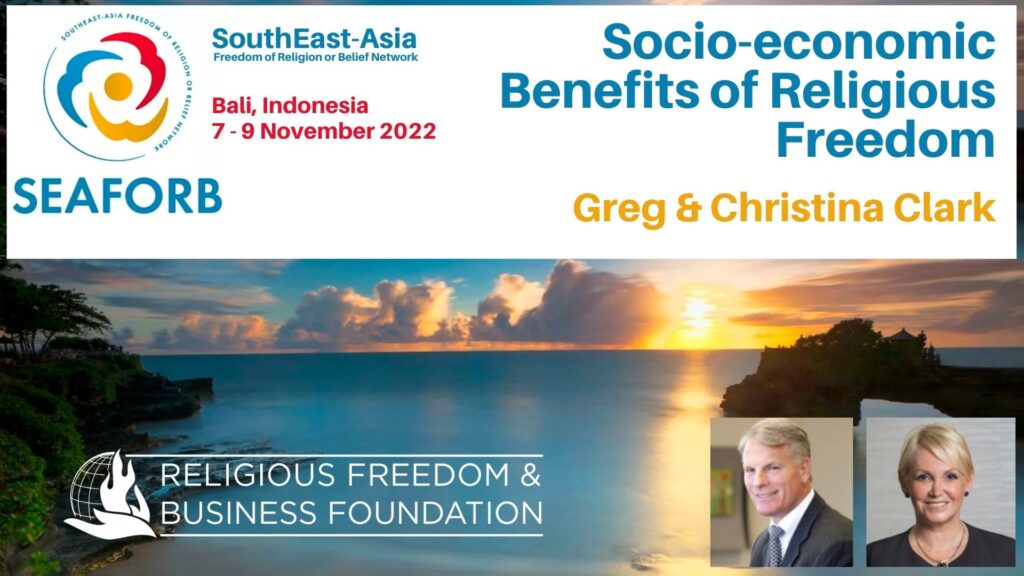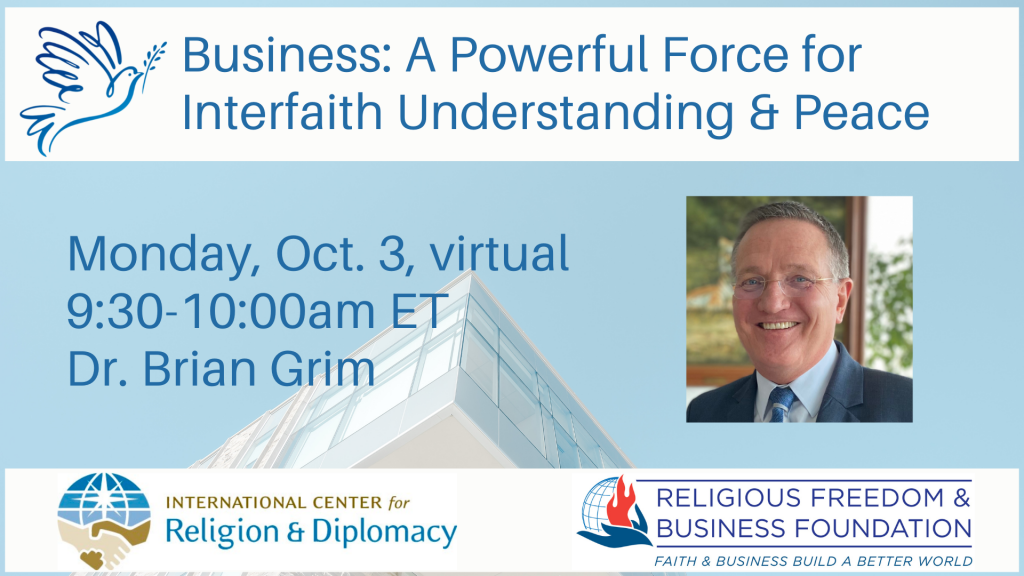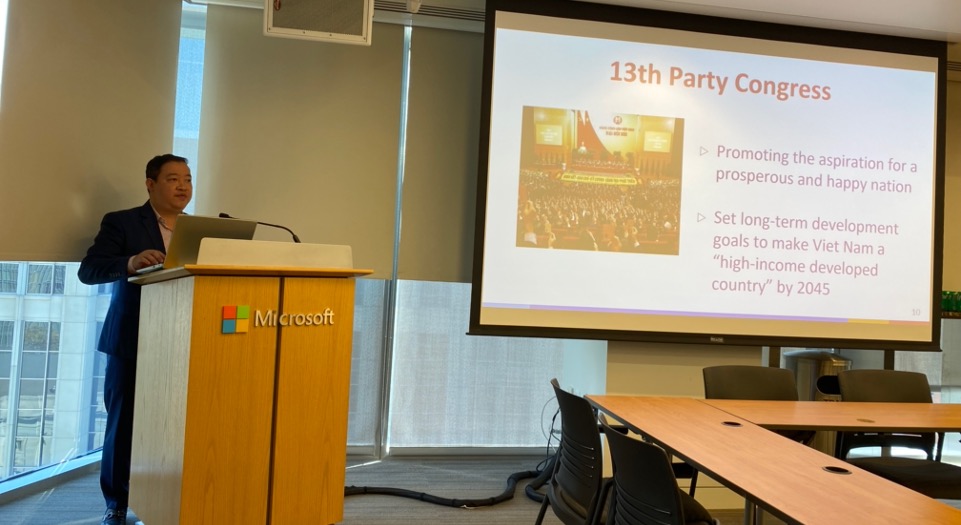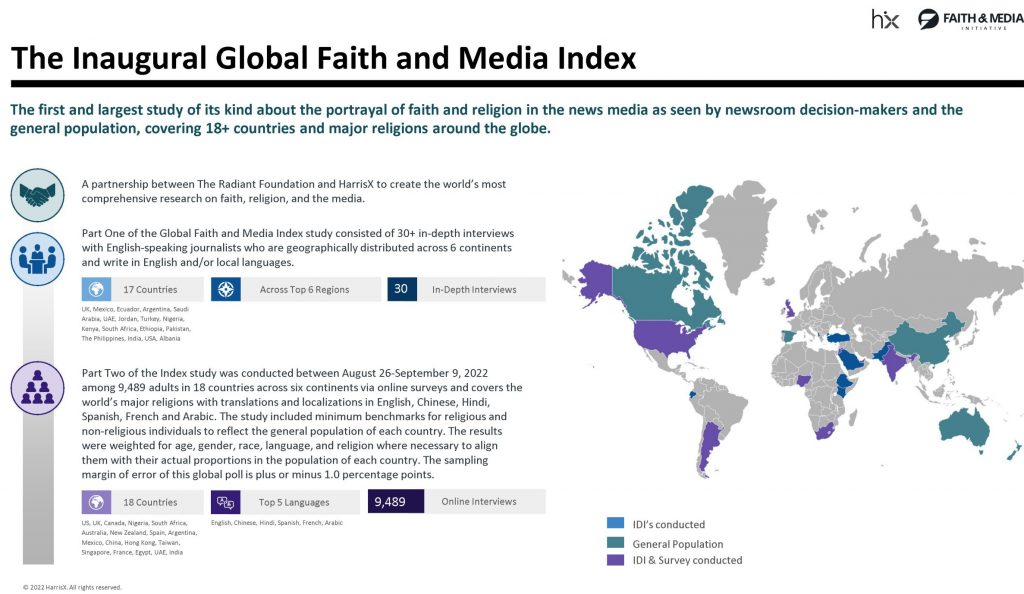 Religious Freedom & Business Foundation Vice President, Greg Clark, J.D., and Senior Education Engagement Specialist Christina Clark, Ph.D., will make a plenary presentation at the Eighth Annual Southeast Asia Freedom of Religion or Belief Conference (SEAFORB) Bali, Indonesia 7 – 9 November 2022.
Religious Freedom & Business Foundation Vice President, Greg Clark, J.D., and Senior Education Engagement Specialist Christina Clark, Ph.D., will make a plenary presentation at the Eighth Annual Southeast Asia Freedom of Religion or Belief Conference (SEAFORB) Bali, Indonesia 7 – 9 November 2022.
They will present on the benefits of promoting religious freedom within a country, including its connection to economic growth, social stability, human and social development, among other benefits.
They will also describe how religious freedom benefits a company from within, including enhanced bottom line and increased well-being of employees bringing their whole self to work, including their faith and beliefs.
About SEAFORB
The Southeast Asia Freedom of Religion or Belief Conference (SEAFORB) is an assembly of religious freedom advocates who are dedicated to promote religious freedom in Southeast Asia. The SEAFORB assembly is an ongoing project to advance FORB, bringing religious equality and liberty for all individuals.
This year will be the eighth conference of SEAFORB. The first conference was held in October 2015 in Bangkok and resulted in a Declaration of Freedom of Religion or Belief in Southeast Asia. The second conference was held in Dili, East Timor in August 2016 and secured commitment from participants to develop long-term action plans to further advance and promote freedom of religion or belief. The third conference was held in Manila, Philippines in November 2017 and concluded with the formation of FORB Network. The fourth conference was organized in Bangkok in August 2018 and focused on fostering networking among FORB advocates in four countries of priority: Indonesia, Malaysia, Myanmar, and Vietnam. The fifth was held in Bangkok in Nov 2019 that engaged with the global movement on FORB.
The sixth and seventh conferences were held during the Covid-19 pandemic. Due to the travel restrictions and quarantine policy of Covid-19, the SEAFORB held the meetings through a webinar. The sixth conference was held on October in 2020 and discussed the impact of the Corona crisis on human rights and FoRB in Southeast Asia. The seventh conference was conducted online from November to December 2021.
























 As Western business exits China, Xi seeks to forge an alternative world order on first trip outside China
As Western business exits China, Xi seeks to forge an alternative world order on first trip outside China


